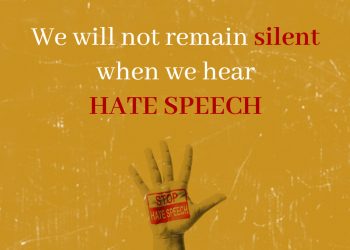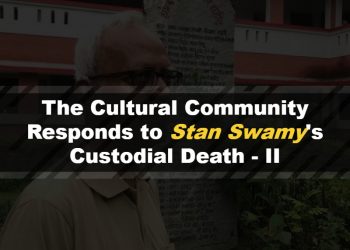A recent judgement of the Gauhati High Court appeared in the national press on February 19. A division bench of justices Manojit Bhuyan and Parthivjyoti Saikia rejected the appeal of a fifty-year-old woman, Jabeda Begum, of Assam’s Baksa district, who had been declared a foreigner by the Foreigners Tribunal on May 31, 2019.
Under the terms of the NRC, any one of fourteen documents will suffice to establish a claim to citizenship. However, the fifteen official documents that Jabeda Begum submitted in support of her claim were rejected.
What follows is a translated and lightly edited transcript of Prof Faizan Mustafa’s examination of the case, uploaded to the Legal Awareness Web Series on February 18.
There are two orders of the Gauhati High Court today, the first case involving a Muslim woman, Jabeda Begum, and the other a Hindu man, Munindra Biswas. In both cases several documents to prove their identity existed but the Foreigners Tribunal did not accept them. Unfortunately, cases that move on appeal from the tribunals to the high court have a low rate of success. For the most part, the court has overturned the tribunal’s judgement only where it exceeded its jurisdiction or the judgement was found to be ex parte (one-sided or showing favour).
The issue of citizenship has been much discussed. It has brought anxious people out into the streets, and Assam’s experience of the Foreigners Tribunals has contributed to the anxiety. The tribunals were formed as per an executive order. The judges who sit on them aren’t judges but lawyers and civil servants. An initial precondition that they should have judicial experience of ten years was later lowered to seven. Executive interference has now increased to the extent that tribunal members, who were earlier appointed for two-year terms — and now for a year at a time — have their contracts renewed based on their success rate in rejecting applicants. If they fail to impress the government with the number of people they declare as foreigners, their contracts are terminated.
This isn’t the first time we are faced with such a case. Lawyers I am in touch with at the Gauhati High Court tell me this is a fairly routine outcome. In the present instance, Jabeda Begum had fifteen documents, including a PAN card and voter ID, several revenue receipts, a ration card, bank documents — but they were not considered sufficient proof of Indian citizenship. In fact, her siblings have been included in the NRC, but not she. She had landed in the arbitrary “D-voter” category back in 1997; hence the tribunal did not accept her as an Indian citizen. The way this process is playing out is amazing.
Also Read | “Verification” of Citizenship: Arbitrary Denial of Rights?
I have been saying for some time that the issue here is not that people in Assam lack documentary evidence and get ruled out of the register of citizens in consequence. The problem of a lack of documents will arise once the NRC is extended across the country. In Assam everyone was aware of the upcoming process and safeguarded their documents with their lives. There were fifteen valid documents in this case, but the criteria and interpretation applied by the tribunal were so strict that none was accepted. The high court has upheld that decision.
The NRC process has a clear gender bias. In order to get her name on the list, a woman needs to prove her “legacy connection” to a man whose name was on the NRC list of 1951 or a voter list from before 1966. With child marriages rampant, many girls are married off before reaching the age of eighteen. A name cannot enter a voter list before eighteen — and that since Rajiv Gandhi’s day, earlier people became voters at twenty-one. When a woman’s name enters the voter list, it is put down as “wife of so-and-so”. The husband’s Indian citizenship does not automatically confer citizenship on the wife. [Married women make up 60 per cent of the D-voter list.] In the present case, the gaon bura, or village headman’s certificates attesting to Jabeda Begum’s birth, residence and marriage in the village were not accepted as evidence either.
The high court has quoted certain judgements. One of them is The Union of India vs. The Madras Bar Association (2010), where the Supreme Court held that tribunals would form their own procedure for functioning and would not be strictly governed by evidence law or the code of civil procedure. This has left the tribunals free to function as they see fit. They implement certain sections strictly, interpret others liberally — it’s been left up to them. The most important point here is that Section 50 of the Evidence Act states clearly that in a matter where the relationship of one individual to another is in question, a family member with knowledge of the networks of relations within the family may give evidence and that evidence will be treated as relevant. In the Jabeda case, the evidence of family was ruled out.
It is astonishing to see where we have reached. Mohammad Sanaullah, a former BSF employee and Kargil War veteran, who received a certificate of appreciation from the President, had his certificate rejected as evidence by the tribunal. Whereas the voter list and an appearance in the 1951 NRC list are public documents, a nikah nama or marriage certificate and village headman’s certificate are private documents. If you submit these as evidence you must also bring as witness the authority who issued them: the qazi who conducted your marriage twenty years ago, the gaon bura who certified your birth and residence back in the village. Did the Foreigners Tribunal expect the President to appear before it and swear to the truth of the certificate awarded to Sanaullah? This is an arbitrary process. The Foreigners Tribunals are no courts, nor quasi-judicial bodies; they are kangaroo courts.
Also Read | Faizan Mustafa : Is NPR really legal?
The real issue here is a Supreme Court judgement, that of the L. Chandra Kumar case of 1997, where a seven-judge bench ruled that a case moving on appeal from the Foreigners Tribunal would be heard by a divisional bench of two judges. The judgement curtails a right enjoyed earlier by appellants, where their case was heard first by a single-judge bench and then a two-judge one. The Gauhati High Court has quoted the Supreme Court’s judgement in the Jabeda case. And it has happened before as well. There is the case of The State of Assam vs. The Moslem Mondal (2013), where the high court states that when it is approached under Article 226 [which enables the court to issue writs, such as certiorari — requiring the record of a lower court to be sent up for review], it will review such records only if there is a massive error, and it won’t move to correct the error since it is not an appellate court. Our courts have been creating a whole new jurisprudence. The fact is that the high court has greater powers in issuing writs than the Supreme Court. The Supreme Court may issue a writ only where a violation of fundamental rights is alleged. The high courts may issue writs in such cases as well as those concerning the violation of any other right. In both the present cases — whether of Jabeda Begum or Munindra Biswas — the high court has thrown up its hands, saying this is a matter of Article 226 and the court is not listening to appeals; if the foreigners tribunal has declared something as a fact, the court cannot declare it erroneous.
There were fifteen documents before the Foreigners Tribunal: from the PAN card, to land revenue documents and the headman’s certificate. The headman is not certifying citizenship. All he says is that the individual happens to be the wife of a certain man, or his daughter. If admissible evidence was placed before the tribunal and it was not considered as such, the high court may review it. We have just seen Section 50 of the Evidence Act where a family member’s testimony may attest to relationships within the family in the absence of documents; that was not done in this case. The high court could have chosen to consider that evidence, even if it decided not to overrule the tribunal’s judgement on the other documents. It did not do so. To me this looks like a flagrant injustice.
We are not weeding out foreigners via the tribunals. We are declaring our own citizens as foreigners. Such judgements, where even fifteen documents will not suffice to prove citizenship, can only lead to anxiety and panic across the country. We are already seeing it. It would be wrong to think this is happening only to Muslims. The other judgement of the Gauhati High Court is about a Hindu man.




